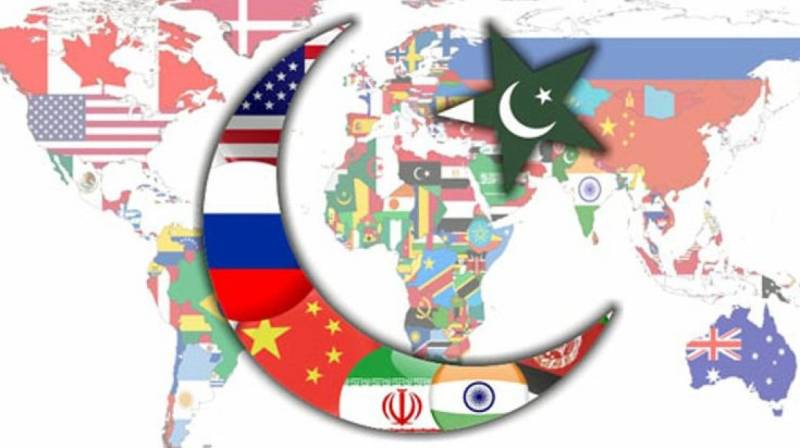Pakistan’s policy conundrum

Stay tuned with 24 News HD Android App

The anxieties of millions of diverse people are soaring. Nights are fearful for some, while peaceful for others. Days are a challenge for all and sundry. No one is without worry. Pakistanis are not naive to the wide-ranging and deeply raging problems of their beloved country. While a lot is wrong with those of us in the citizenry – or those on the receiving end, a constant fight for power is what is wrong with those on the giving end. The vibe right now, if it were to be described in one word, is chaotic.
The cherry on top is the plethora of foreign policy dilemmas facing Pakistan that seem to be dealt with, not in a proactive, but a reactive manner. Pakistan’s debt crisis, for instance, as feared by most, will drive the country to the flailing end of the tunnel of darkness. It is one of the biggest reasons why Pakistan fails to carve out a standing of its own, in all its individuality and sovereignty, on the world stage. So what should be the agenda at hand?
In Pakistan, some argue that if Pakistan’s internal policy problems are catered to, it will have a snowball effect and ensure great dividends on the foreign policy front of the country. On the other hand, some believe that the central theme and the driving force of all policy in Pakistan, including decisions regarding who will govern and how should be made in light of the country’s external policy issues. Consequently, a trickle-down effect of this mars any forward-looking, long-term policy outcomes on the public policy front.
In this case, one would argue, that the challenges that Pakistan faces on the foreign policy front are all inculcating and un-ignorable. It is true. With a hostile nuclear arch-rival in the East, a superpower in the North-East, erstwhile Soviet Union nations in Central Asia, a Taliban-led Afghanistan in the West, and a strong US-Israel enemy in the form of Iran also bordering Pakistan, it is only right to expect Pakistan to be overwhelmed by the enormity of the tasks it has to decode. By now, it must have been clear as daylight to those taking turns in the echelons of power, that power was vested in them to unite, not divide Pakistan, to put their strongest foot forward when facing internal and external enemies, and not show their weaknesses as a nation.
What we are facing right now may not be new, but the monster is constantly being fed and growing, and it can take away the remnants of the dignity of our nation.
Needless to say, be it the internal or external policy of the country, the role of the US has been decisive. The contemporaries of our age, including ex-US Secretary of State Henry Kissinger, Joseph Nye, Fareed Zakariya, Graham Allison, and John Mearsheimer argue that with the administration of President Trump in charge, the role of the US on the global stage faced a decline. But for Pakistan, the imprints of the US policies in the region remain intact, mostly because Pakistan’s internal politics has often been driven by the US policy towards Pakistan.
The most recent account of the same can be drawn from the policy outcomes of the Trump-era US policies towards South Asian nations. Pakistan is still facing the repercussions of having an active yet reactive foreign policy. At first, under Trump, the US sought to isolate Pakistan on the international front if it did not meet US demands vis-a-vis anti-terrorism. Aid cuts were in the offing, along with a constant threat of Pakistan being placed on the FATF blacklist. Not only that, a multitudinous partnership was forged with India, to boost India as a hegemon in the region. Later, when Pakistan once again needed to power up the Afghan Peace Process, an alliance of convenience between the two countries was in the offing. This transactional and need-based relationship was not new to Pakistan either.
Pakistan is long out of the Trump era and yet, it has not been able to find a way out of what was left behind by the Trump administration in the aftermath of the Kabul takeover of August 2021.
While the US has left Af-Pak symbolically, the Taliban are back in business. Pakistan’s terrorism nightmare is prolonged beyond measure. On the other hand, Kashmir remains a key policy issue for Pakistan. Business with Iran is subject to US sanctions on Iran and it is still relevant influence in the region. Pakistan’s only beacon of hope is its diplomatic relations with neighbors, mostly China, and looking outward in terms of gaining diplomatic leverage on the world stage.
Finally, it remains to be seen if the policymakers in Pakistan are ready to encourage fair, if not free, political discourse in the country to encourage inclusive voices. This will ensure improved governance from policy making to policy implementation. It also remains to be seen what the future US involvement in the region will look like. For now, what is clear is that the US-India partnership will see new heights, while China and its growing influence in Central Asia, Pakistan, and the Gulf, will continue to threaten US power-driven ambitions in the region. For Pakistan, the time is ripe for a positive change in its domestic and foreign policy before the ills facing Pakistan overshadow the chances of any growth. While phenomenal work on revamping Pakistan’s outlook is being carried out, politicians and policymakers have a chance to start focusing more on solutions than on highlighting the problems alone. For instance, in this regard, the “Reimagining Pakistan” forum is a promising new perspective.
